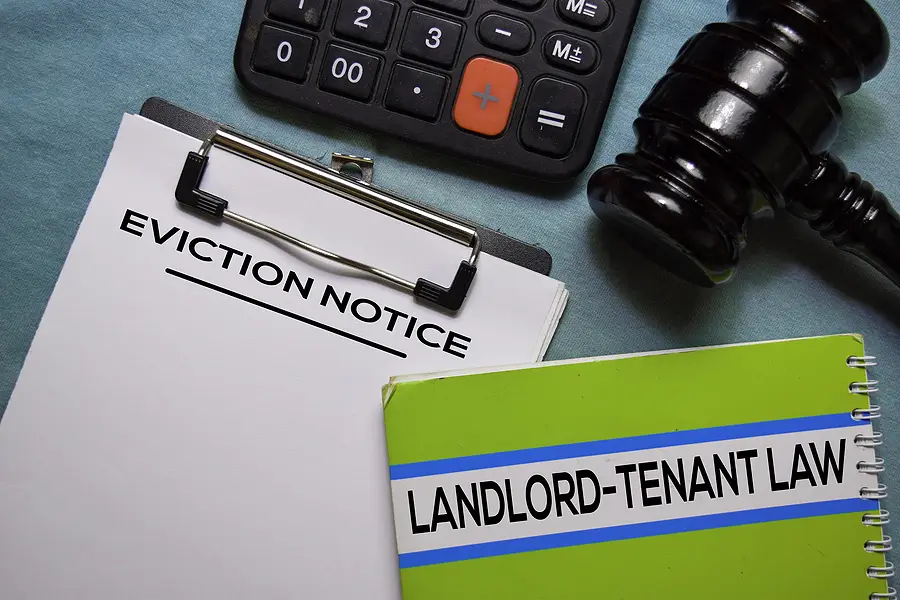Business owners often thrive on their instincts, but when it comes to tenant eviction in Oregon, following strict legal processes isn't optional.
With Oregon's evolving tenant protections and state-specific rules, it's easy to misstep and turn a straightforward eviction into an expensive ordeal.
The stakes are high—forfeiting court cases, incurring hefty court costs, or violating tenant rights can hurt your bottom line.
To help you stay ahead, here's an in-depth breakdown of the do's and don'ts every property owner should know.
Understanding Tenant Eviction in Oregon
Evicting a tenant isn't a simple action like canceling a subscription. It's a legal process governed by Oregon law, designed to protect the landlord and tenant.
Whether the tenant violates the lease or refuses to pay rent, you must approach eviction with carefully planned steps to avoid costly errors.
Ensuring the terms outlined in the tenant's lease are followed will give you a clear foundation for effectively addressing disputes.
Reasons for Eviction Action
Eviction actions require valid reasons under Oregon laws. Common reasons include non-payment of rent, health and safety violations, or tenant involvement in illegal activities.
Whatever the cause, document every interaction, as the burden of proof lies with the landlord.
How Evictions Work in Oregon
Evictions work through a carefully legislated framework. From the notice requirements to the court ensuring tenants receive a fair trial, the system balances landlord and tenant rights.
However, local governments may introduce additional requirements, so staying informed about jurisdictional nuances is critical.
The Oregon eviction process timeline is precise, and landlords must comply with each step. Every stage involves deadlines and specific requirements, from serving notices to filing an eviction lawsuit.
For example, notices must include the termination date and details of the lease violation. Any shortcuts could jeopardize your case.
Here’s an overview of the common steps involved:
Delivering an Eviction Notice
An eviction starts with a written notice. This document informs your tenant about the issue, such as unpaid rent or a lease violation.
Types of notices in Oregon include the 72-hour notice to pay rent or quit and the 30-day notice for other violations. Proper notice is non-negotiable. Without it, your case could be dismissed before proceeding to court.
Filing an Eviction Lawsuit
If the tenant does not remedy the issue during the notice period, the next step is to file an eviction lawsuit. Oregon law requires landlords to submit their cases through the circuit court, along with the appropriate filing fee and proof of notice delivery.
When the landlord files a case, accurate and organized documentation is mandatory. This documentation includes your lease agreement, proof of delivered notice, and evidence of the violation.
Missing any documentation can delay your progress. Incorrect forms or missing paperwork might also compel the judge to rule in favor of the tenant.
Eviction Case Hearings
During an eviction case, you must present evidence supporting your claims. For instance, if the tenant appears in court, you'll have to prove that you served the correct notice and adhered to Oregon law.
Whether the tenant has refused to pay rent or caused substantial damage, having a complete paper trail—from the rental agreement to notices—is your best defense.
The court date marks your first appearance hearing. During this session, landlords and tenants may have the chance to explore mediation. Settling out of court might save you both time and expenses.
If unresolved, the court schedules a trial date, where the landlord and tenant will formally present their cases.
Eviction Trials
If the case proceeds past the initial hearing, it moves to trial—formally known as a FED trial (Forcible Entry and Detainer). In Oregon, eviction trials are typically scheduled within 15 days of the first court appearance, keeping the process swift but procedurally strict.
At trial, both parties have the opportunity to present their evidence and arguments before a judge. This includes witness testimony, photographs, lease agreements, payment records, and copies of any notices served. For landlords, the burden of proof lies in showing that the eviction is lawful, notice was properly served, and the tenant failed to comply within the statutory period.
Trials in Oregon eviction cases are often brief—many are resolved within a single session. However, the outcome hinges on thorough preparation. Judges pay close attention to procedural compliance. Even small errors—such as incorrect notice language or missed deadlines—can result in the case being dismissed, regardless of the tenant’s behavior.
Importantly, Oregon courts are tenant-protective in how they interpret the law. Landlords should expect that any ambiguity will be weighed in favor of the tenant. That’s why meticulous documentation and adherence to legal timelines are critical. If the court rules in favor of the landlord, it will issue a judgment of restitution, authorizing the tenant's removal if they don’t vacate voluntarily.
Landlords who win their case should then coordinate with the county sheriff to enforce the eviction order. Self-help evictions—such as changing locks or removing tenant belongings without a sheriff’s intervention—are illegal in Oregon and could expose landlords to liability.
Understanding how eviction trials work in Oregon is essential to navigating the process lawfully and effectively. Whether you’re managing one property or a large portfolio, working with legal counsel or a property management firm familiar with Oregon landlord-tenant law can significantly reduce risks.
Landlord and Tenant Collaboration
Contrary to typical courtroom drama, some eviction cases can avoid escalation. Mediation allows both the landlord and tenant to negotiate terms, especially when valid reasons for eviction align with tenant protections.
Oregon landlords often resolve disputes by offering options for the tenant to rectify the problem without a drawn-out trial.
Tenant Protections Under Oregon Law
Oregon landlords must understand the extent of tenant protections. Fundamental rights include notice periods, legal representation, and safeguards against retaliatory evictions.
Awareness protects you from unintentionally violating state laws while ensuring tenants are treated fairly.
Dealing with Tenant’s Personal Property
If tenants leave belongings behind after eviction, landlords have legal responsibilities to manage storage and disposal. Under Oregon law, landlords must notify the tenant about how to reclaim their personal property.
Following this ensures you avoid disputes down the line.
Costs and Consequences of Eviction
Court costs, lost rent, and property damages can add up quickly. Remember, enforcing the judgment requires time and expenses, even when a landlord wins and the tenant loses.
Preventing eviction through better screening or strong lease agreements often saves costs and hassle. If you’re struggling to find reliable tenants, a property manager can help.
Final Thoughts on Evicting a Tenant in Oregon
Navigating tenant eviction the right way requires following Oregon law to the letter. Each step matters, from issuing termination notices to presenting your case in eviction court.
The best approach? Stay informed, document everything, and consult with property managers or legal professionals when in doubt.
We at Kerr Properties take the stress out of managing your rental properties by offering tailored solutions, including expert eviction services, to maximize your investment.
We will guide you through every step of the process, ensuring that timelines, tenant communication, and legal requirements are met efficiently.
Evictions aren’t just about reclaiming your rental property—they’re about doing it responsibly and lawfully.
Other Resources:
Landlords Insurance vs Renters Insurance: Protection That Matters in Portland, OR
Screening Success: Finding the Perfect Tenant for Your Gresham Property


